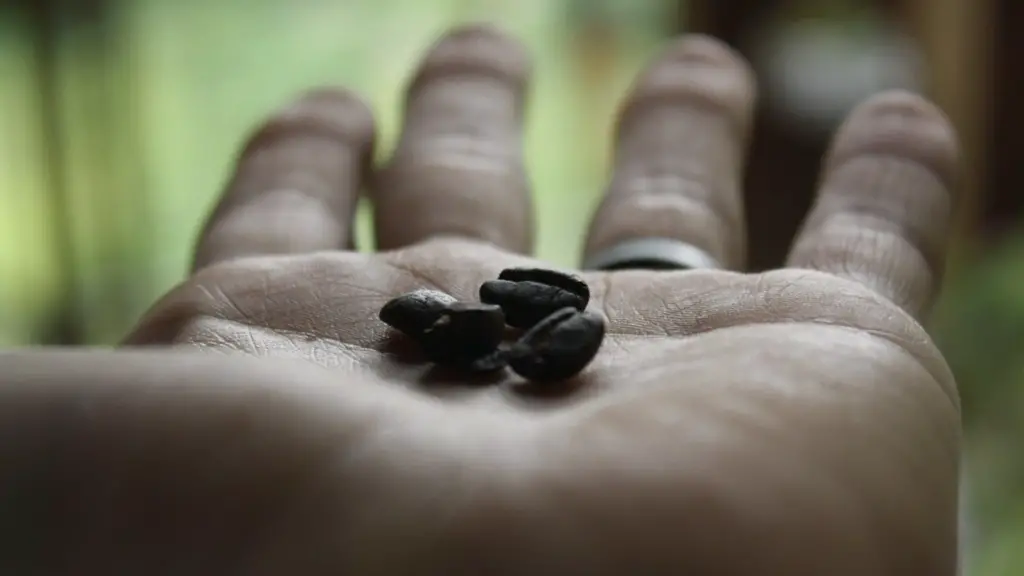Caffeine Can Have Positive Benefits
Drinking coffee first thing in the morning can be both bad and good for people’s health depending on the individual’s situation. For those who don’t usually drink coffee, the effects can be more pronounced and potentially more detrimental.However, there are many positive benefits that the right amount of caffeine can bring. Caffeine can increase mental alertness, provide a burst of energy, and even give an extra boost to a workout. Studies have also shown that moderate doses of caffeine can reduce inflammation, which may lower the risk of cardiovascular disease and diabetes.
Caffeine is Addictive
Though caffeine can have some positive benefits, it can also be highly addictive for some people. When one has to drink caffeine every day just to feel normal, it can quickly become an addiction. This when it can become dangerous, as too much caffeine can interfere with sleep and cause anxiety. The increased levels of stress that come with consistent caffeine intake can further elevate the feeling of being on-edge.
What Is The Appropriate Amount Of Caffeine?
Though opinions vary, experts suggest that the healthy limit for caffeine intake is 400 milligrams per day. That’s about four to five cups of coffee per day. Any more than this and you may be pushing the limits and may be headed down a slippery slope in terms of addiction.
Alternatives To Drinking Coffee
While coffee is the most popular and easy way to get that morning jolt, there are other alternatives. Those alternatives are generally healthier, but may not have the same amount of caffeine as a cup of coffee. Tea often contains a small amount of caffeine and some herbal teas can provide enough caffeine to feel alert. There is also the option of having a decaffeinated coffee, which may still give you the ritual and taste of having a cup of coffee, with less of the kick.
How Does Caffeine Affect Our Bodies?
When someone consumes caffeine, the chemical reaction in the body is the same for everyone. Caffeine blocks the effects of an inhibitory neurotransmitter in the brain, called adenosine. This makes us feel more alert and energetic. Though the effects are not nearly as long-lasting as those associated with other stimulants, such as amphetamines or cocaine, the effects can be felt for several hours.
Should You Avoid Drinking Coffee?
The simple answer is that it depends on the individual. Those who are addicted to caffeine may want to consider a detox or using decaffeinated beverages in place of coffee to reduce their overall intake. It’s also important to be aware of your own sensitivity to the drug, as some people may react more positively or negatively than others.
Does Coffee Dehydrate You?
Though many people believe that coffee will lead to dehydration, it’s actually not the case. According to the Mayo Clinic, drinking coffee won’t dehydrate you, as long as you take into account other liquid sources and make sure that you drink the appropriate amount of water, too.
What is the Best Time of Day To Drink Coffee?
If you are going to drink coffee, it’s best to do so in moderation and, if possible, to do so in the afternoon and not in the morning. Drinking coffee first thing in the morning may lead to an energy crash and caffeine addiction as the day goes on. This can lead to restlessness, irritability, and difficulty falling asleep, which are all signs of excessive caffeine consumption.
How Does Caffeine Affect Mental Health?
For some people, drinking coffee may be a way to manage stress, depression and anxiety. Though there is evidence that caffeine can help improve alertness and focus, it can also lead to irritability and jitteriness. According to the National Institute of Mental Health, the long-term effects of excessive caffeine consumption can be mental health issues such as caffeine-induced anxiety disorder, panic disorder, and depression.
Does Coffee Increase Your Risk Of Heart Disease?
Though drinking coffee does not seem to directly raise your risk of heart disease, it’s important to be aware that coffee can increase your blood pressure temporarily. This effect is more pronounced in those with higher levels of caffeine sensitivity. In addition, coffee is often paired with sugar, cream and other unhealthy ingredients which can add an extra layer of risk.
Can Coffee Exacerbate Other Health Conditions?
Though the effects of coffee are considered to be mostly beneficial, it can also exacerbate certain health conditions in certain individuals. Caffeine can cause an increase in heart rate and an increase in blood pressure, both of which can be potentially dangerous for those with cardiovascular health issues. It can also affect those with diabetes, as caffeine can cause temporary spikes in blood sugar levels. Those with kidney or liver disease should also be cautious about their caffeine intake, as caffeine can cause a worsening of their condition.
What is the Difference Between Regular Coffee and Instant Coffee?
Regular coffee and instant coffee are made differently and their effects can vary for different individuals. Regular coffee is made from true coffee beans, whereas instant coffee is simply dried and processed coffee beans. Regular coffee has more antioxidants and caffeine, and the taste is typically richer than instant coffee. Instant coffee, on the other hand, usually has fewer antioxidants and caffeine, and a more bitter flavor. It’s also important to note that instant coffee usually contains a higher amount of preservatives and artificial sweeteners.



